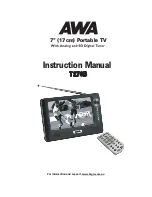
13 — English
OPERATION
CHECKING/ADDING FUEL
See Figure 4.
WARNING:
Gasoline is extremely flammable and explosive. A fire
or explosion from gasoline will burn you and others.
Always shut off engine before fueling. Never add fuel to a
machine with a running or hot engine. Move at least 30 ft.
from refueling site before starting engine. Do not smoke
and stay away from open flames and sparks. Failure to
safely handle fuel could result in serious personal injury.
Remove the fuel cap.
Fill the fuel tank to 1 in. below the top of the fuel neck.
Replace and secure the fuel cap.
NOTE
: Always use unleaded gasoline with a pump octane
rating of 86 or higher. Never use old, stale, or contaminated
gasoline, and do not use an oil/gas mixture. Do not allow dirt
or water into the fuel tank.
Do not use E85 fuel.
WARNING:
Check for fuel leaks. A leaking fuel cap is a fire hazard
and must be replaced immediately. If you find any leaks,
correct the problem before using the product. Failure
to do so could result in a fire that could cause serious
personal injury.
USING FUEL STABILIZER
Fuel gets old, oxidizes, and breaks down over time. Adding
a fuel stabilizer (not included) extends the usable life of fuel
and helps prevent deposits from forming that can clog the
fuel system. Follow fuel stabilizer manufacturer’s directions
for correct ratio of stabilizer to fuel.
Add stabilizer to fuel tank, then fill with gasoline following
previous instructions.
NOTE:
Fuel stabilizer and gasoline can be mixed prior to
filling the tank by using a gas can or other approved fuel
container and shaking gently to combine.
Replace and secure the fuel tank cap.
Start and run the engine for at least 5 minutes to allow
stabilizer to treat the entire fuel system.
OXYGENATED FUELS
DO NOT USE E85 FUEL. IT WILL VOID YOUR WARRANTY.
NOTE:
Fuel system damage or performance problems
resulting from the use of an oxygenated fuel containing more
than the percentages of oxygenates stated below
are not
covered under warranty.
Ethanol.
Gasoline containing up to 10% ethanol by volume
(commonly referred to as E10) is acceptable. E85 is not.
OPENING AND CLOSING VENTED FUEL CAP
See Figure 5.
The generator has a fuel cap with a vent that can be opened
and closed.
To open the vent, rotate the fuel cap lever to the
OPEN
(I)
position. The vent should be open during operation.
To close the vent, rotate the fuel cap lever to the
CLOSE
(O)
position. The vent should be closed when the
generator is not in use.
CAUTION:
On a level surface with the engine off, check the lubricant
level before each use of the generator.
CAUTION:
Do not place the generator directly on the ground when
using the unit in grassy areas or in areas with dense
vegetation. Doing so could result in grass discoloration
and/or localized soil damage.
STARTING THE ENGINE
See Figures 6 - 9.
NOTE
: If location of generator is not level, the unit may not
start or may shut down during operation.
Unplug all loads from the generator.
Put the auto idle switch in the
OFF
position.
Open the vent on the fuel cap.
Put the on/off switch in the
ON ( I )
position.
NOTE:
When the on/off switch is in the
ON (I)
position
fuel will flow from the fuel tank to the engine.
Move the choke lever right to the
START
position.
NOTE:
If engine is warm, move the choke lever left to
the
RUN
position.
Pull the starter grip and rope until the engine runs
(a maximum of 6 times).
NOTE:
Do not allow the grip to snap back after starting;
return it gently to its original place.
Allow the engine to run for 15 - 30 seconds, then move
the choke lever left to the
RUN
position.
STOPPING THE ENGINE
See Figures 5 - 6.
Remove any load from the generator.
Put the on/off switch in the
OFF ( O )
position.
Close the vent on the fuel cap.
NOTE:
If the temperature is above 75˚F, leave the vent
on the fuel cap open to relieve pressure.
To stop the engine in an emergency situation:
Put the on/off switch in the
OFF ( O )
position.
Содержание RYi2000
Страница 63: ...22 English NOTES ...















































